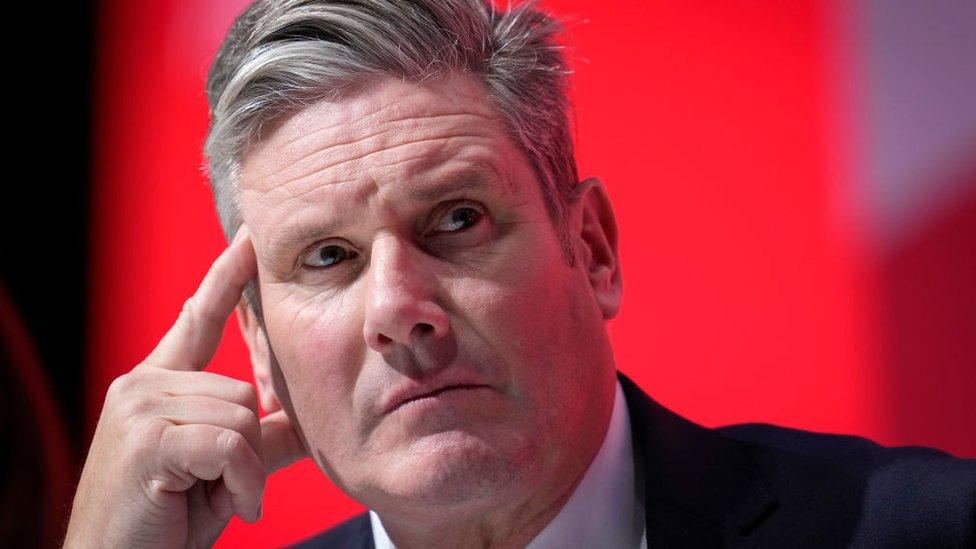Rishi Sunak: Tory PM battling to stay in No 10
- Published
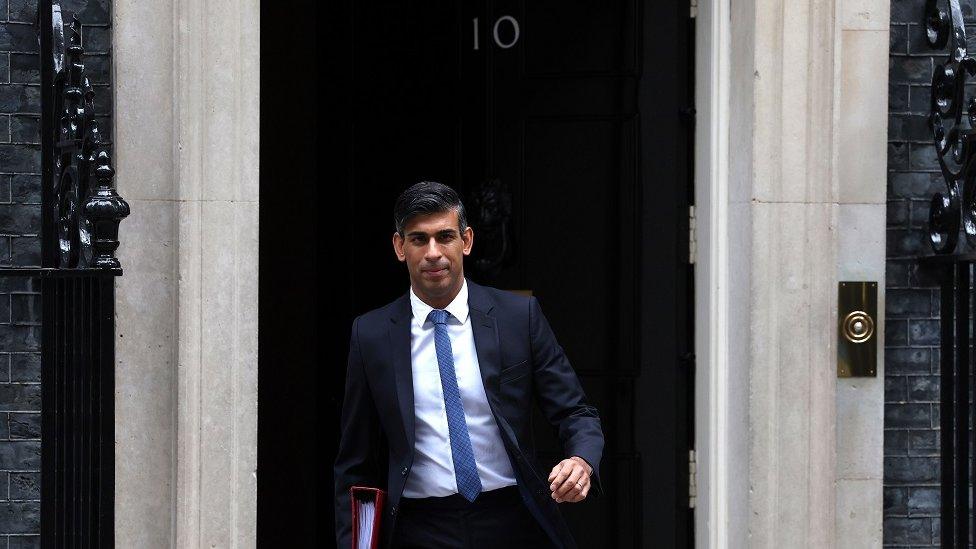
Nineteen months after he first entered Downing Street as PM, Rishi Sunak faces the fight of his political life to hang on to the job.
Four Conservative prime ministers had already come and gone when, at the age of 42, just seven years an MP, he was tasked with keeping the Tory show on the road.
The MPs who put him there hoped he would steady the ship after turbulent times under Boris Johnson and Liz Truss, before mounting a comeback for the party trailing a long way behind Labour in the opinion polls.
So far that comeback has yet to materialise. With a general election having to be called by January 2025, the assumption was that Mr Sunak would play it long and go to the country in the autumn, in the hope his political fortunes would eventually pick up.
His surprise calling of an election on 4 July has left some some Conservative MPs scratching their heads but his allies insist it was a smart move.
The youngest occupant of No 10 in modern times, Mr Sunak is also the first British-Indian to be prime minister. A son of first generation immigrants, who worked hard to send him to one of the country's top fee-paying schools, Winchester College, where he was head boy.
He spent time in California and worked at investment bank Goldman Sachs - and two multibillion dollar hedge funds - before entering politics.
A self-confessed "huge Star Wars fan" with a sizeable collection of lightsabers, he is sometimes portrayed as a "geek". He generally swears off alcohol in favour of Mexican Coca-Cola, which, he says, is made with "cane sugar rather than high fructose corn syrup".
Colleagues describe him as a details man, who is always the best-briefed person in any meeting.
He became prime minister in extraordinary circumstances after his predecessor Liz Truss - whom he lost to in a leadership contest after the collapse of Boris Johnson's premiership - quit after just 45 days in the job.
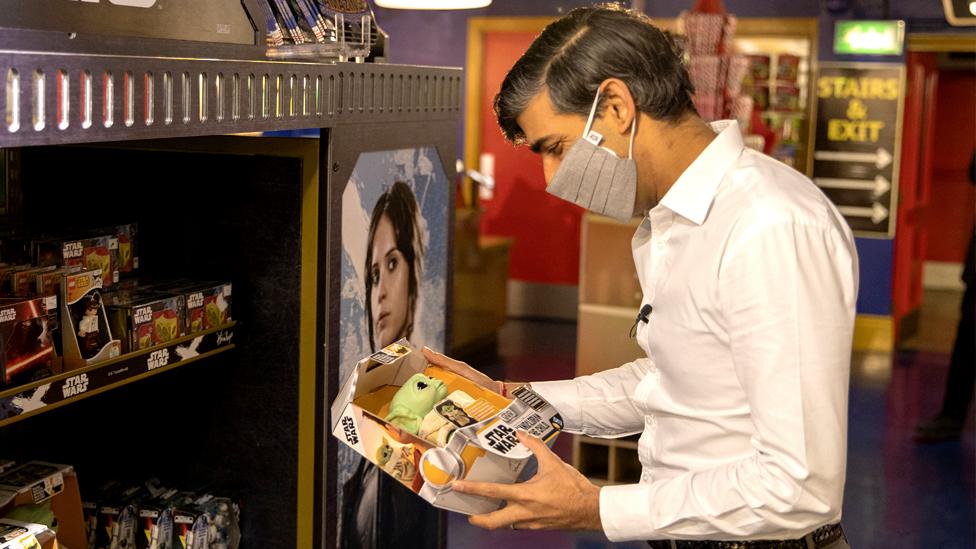

Rishi Sunak: The basics
Age: 44
Place of birth: Southampton, Hampshire
Home: London and Yorkshire
Education: Winchester College, Oxford University, Stanford University
Family: Married to businesswoman Akshata Murty with two daughters
Parliamentary constituency: Richmond (Yorkshire)

Watch: Rishi Sunak says that when it comes to helping the most vulnerable "that's what I did".
Where is Rishi Sunak from?
Mr Sunak's parents came to the UK from east Africa and are both of Indian origin.
He was born in Southampton in 1980, where his father was a GP, and his mother ran her own pharmacy.
"In terms of cultural upbringing, I'd be at the temple at the weekend - I'm a Hindu - but I'd also be at [Southampton Football Club] the Saints game as well on a Saturday - you do everything, you do both."
In the interview he said he had been fortunate not to have endured a lot of racism growing up, but that there was one incident that had stayed with him.
"I was just out with my younger brother and younger sister, and I think, probably pretty young, I was probably a mid-teenager, and we were out at a fast food restaurant and I was just looking after them. There were people sitting nearby, it was the first time I'd experienced it, just saying some very unpleasant things. The 'P' word.
"And it stung. I still remember it. It seared in my memory. You can be insulted in many different ways."
However, he said he "can't conceive of that happening today" in the UK.
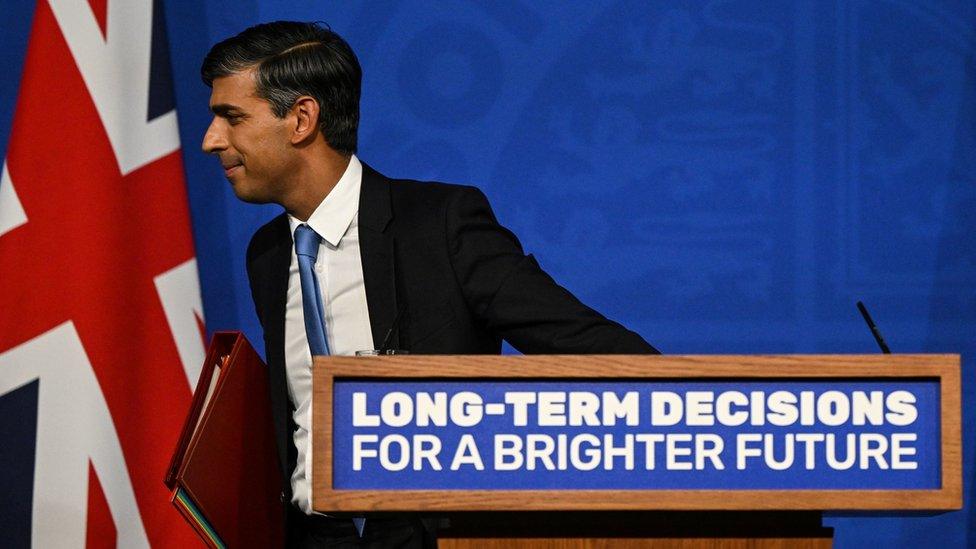
He attended Winchester College and worked as a waiter at a Southampton curry house during his summer holidays.
After finishing school he went on to Oxford to study philosophy, politics and economics, before studying for an MBA at Stanford University in California. There he met his wife, and the couple have two daughters.
His rise to the top of British politics has been rapid - he only became an MP in 2015, in the rock solid Conservative seat of Richmond, in North Yorkshire.
His political opponents have made much of his personal wealth, claiming he is out touch with the lives of most voters.
Who is Rishi Sunak's wife?
Together, he and his wife Akshata Murty - daughter of Indian billionaire Narayana Murthy, who co-founder of IT services giant Infosys - have an estimated worth of more than £650m.
In 2022, Ms Murty announced she would start paying UK tax on her income to relieve political pressure on her husband.
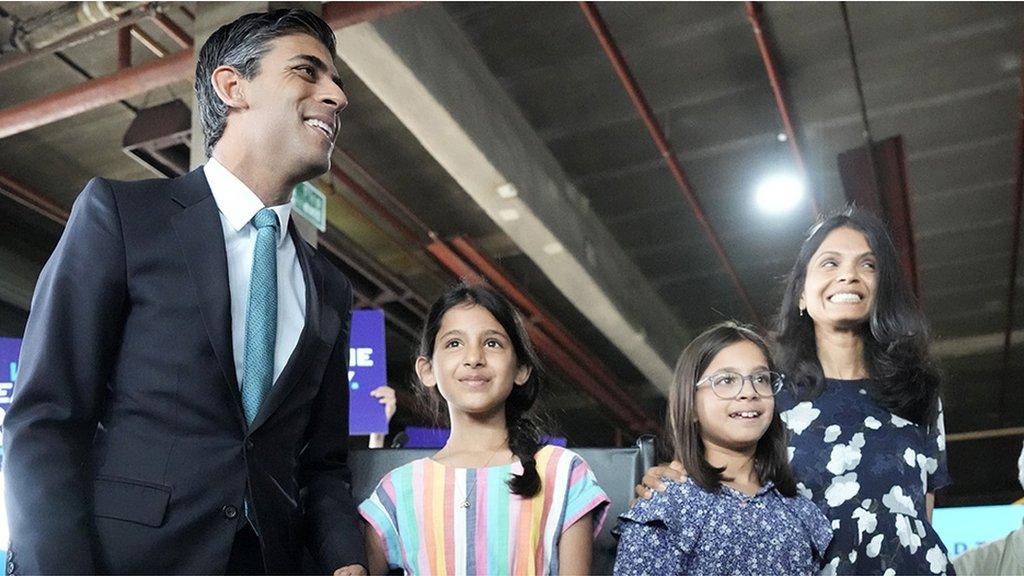
He was arguing for Britain's departure from the EU from his earliest days in politics and supported the Leave campaign in the 2016 Brexit referendum.
But he first came to wider public attention during the coronavirus pandemic, when as the recently-appointed chancellor he spent eye-watering sums on the furlough scheme and other support measures, as well as launching the controversial Eat Out to Help Out scheme.
His personal popularity soared but he also got caught up in the Partygate controversies that rocked Downing Street, being fined, in June 2020, for attending one of the now infamous gatherings.
And he found himself increasingly at odds with his boss Boris Johnson over the economy - pushing for lower taxes and spending cuts.
In July 2022, he resigned from the cabinet, a move that was instrumental in ousting Mr Johnson, which some of the former PM's allies have not forgotten.
He was not elected leader by Conservative Party members. He was, in effect, crowned by Tory grandees desperate for some stability after the chaos presided over by Liz Truss and latterly by Boris Johnson.
He inherited a financial crisis and a party in disarray but also a near 70-seat majority - which has since been significantly eroded by a series of by-election defeats featuring big swings against his party.
At the start of 2023, Mr Sunak set out five promises to voters, he wanted to be judged by:
Halving inflation
Growing the economy
Reducing debt
Cutting NHS waiting times
Stopping small boat crossings
Progress on these has been slow. The overall number of patients waiting for treatment on the NHS is higher than when Mr Sunak came to office, but inflation has dropped sharply in recent months.
The headline rate for the year to April was 2.3%, hailed by the prime minister as a "major moment" - and a clear sign that his economic plan is working.
On small boats, the government passed legislation allowing it to send some asylum seekers to Rwanda - but this was declared unlawful by the Supreme Court.
The government responded by signing a new treaty with Rwanda, declaring it a safe country. This became law in April and the prime minister argues it will deter migrants from crossing the English Channel in small boats.
Critics have dismissed it as a hugely expensive gimmick. Mr Sunak has now said no asylum seekers will be flown to Rwanda before the election - and will go there only if he is re-elected.
He has delayed a ban on new petrol and diesel cars in a major change to the government's approach to achieving net zero by 2050. seeking to portray himself as the friend of the motorist and voters who are unhappy about the personal sacrifices required to reach the net zero target.
He also scaled back the HS2 high speed rail link.
Mr Sunak has pledged to create a "smoke-free generation" by phasing out the sale of tobacco products. The bill could fall by the wayside with Parliament shutting down on Friday but it is likely to be in the Conservative manifesto.
The prime minister's personal ratings have suffered as series of resets has not had the desired effect on Tory fortunes, but he insists he can defy the odds and retain the keys to Downing Street on 4 July.
- Published17 June 2024
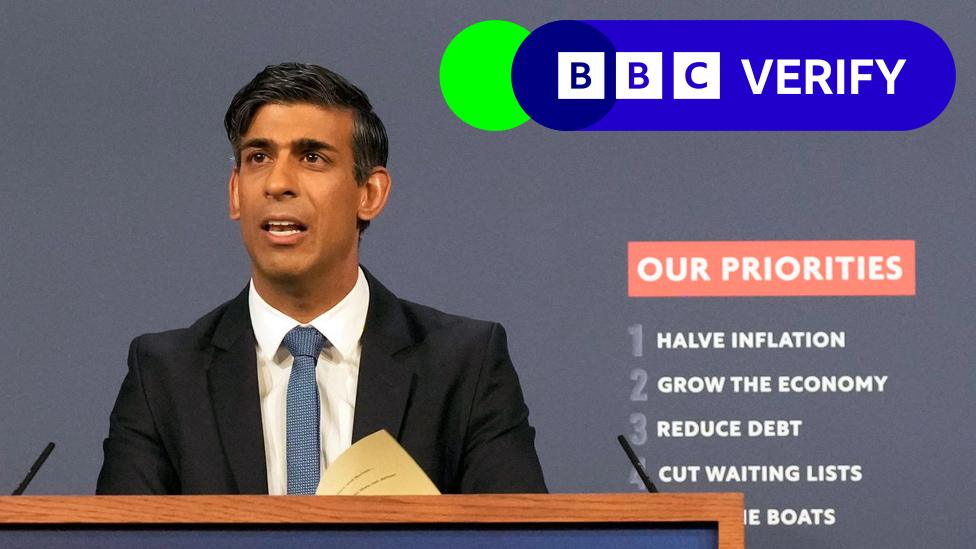
- Published20 October 2022
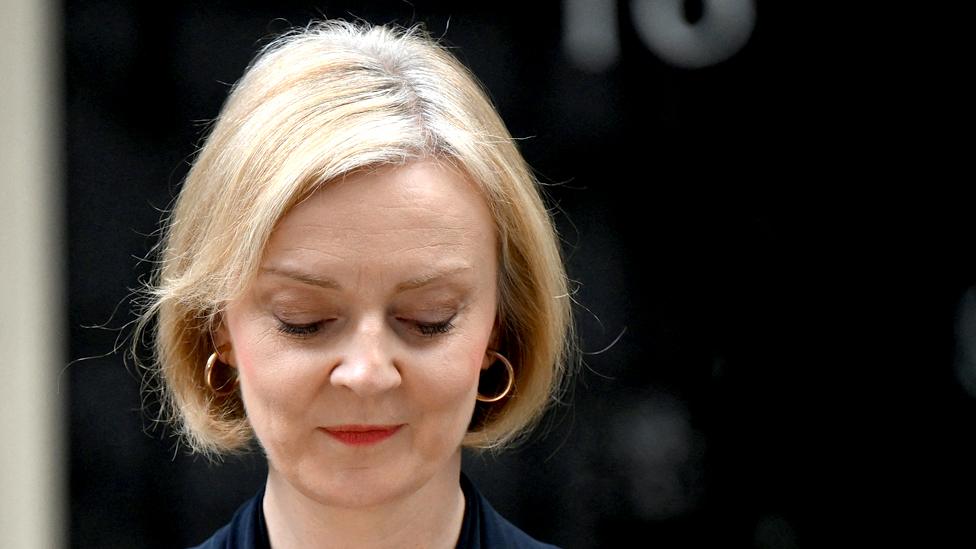
- Published5 July 2024
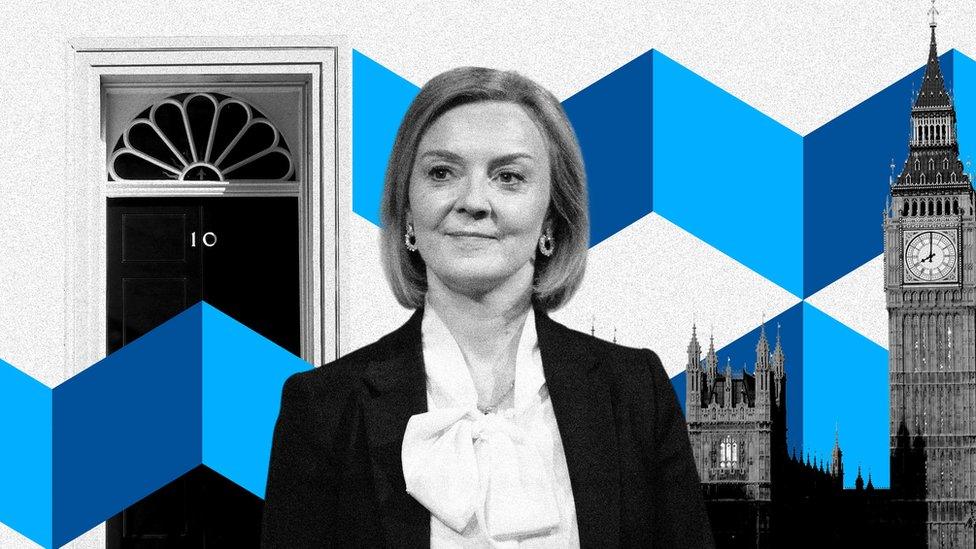
- Published21 October 2022
